




FORA’s VISION is a world where refugees in need are welcomed and empowered.
FORA’s MISSION is to ensure that refugee families are provided access to an education sufficient to prepare them to become economically self-sufficient and robustly engaged in American civic life.
FORA’s OBJECTIVE is to ensure that refugee SLIFE (Students with Limited or Interrupted Formal Education) students and refugee first generation readers catch up to and then maintain grade level so that school becomes joyfully meaningful.
FORA’s STRATEGY is to provide two-hours daily of customized foundational High Impact Tutoring (HIT) in math and English to each refugee student we serve, with a 2-to-1 or less tutor-student ratio throughout the calendar year, ensuring that foundational educational gaps are filled so that educational scaffolding can occur.
FORA’s MAIN TACTICS are to be embedded in the communities we serve, within walking distance of our students, and to establish deep relationships with our students’ parents and teachers so that we work together as partners to support the academic progress of the students we serve.
We at FORA VALUE patience, kindness, wellness, intercultural connection, a passion for l earning and a determined resilience... and modeling these values for others.
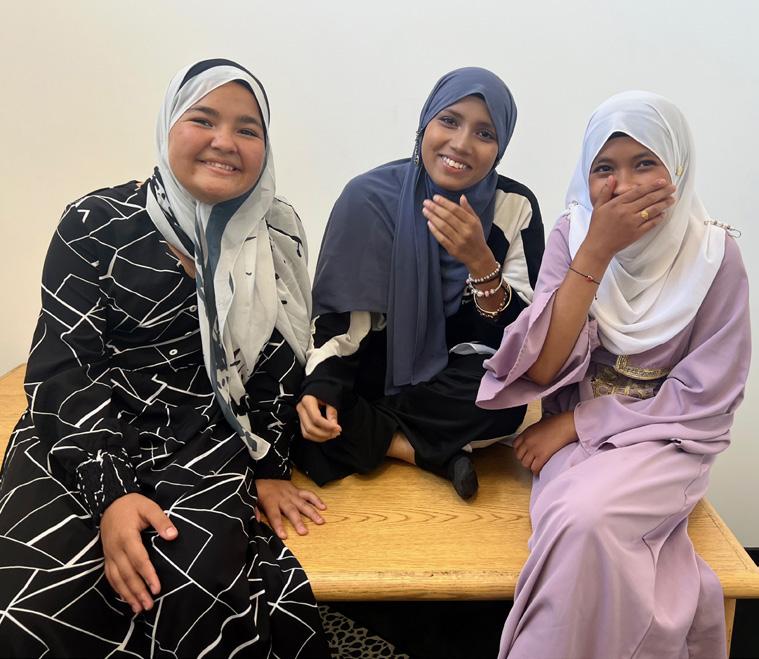
Maryam, Zobaikah and Sofika are eighth-grade students at FORA. Maryam and her family fled Afghanistan, while Sofika and Zobaikah are Rohingya refugees from Myanmar. Beyond excelling in FORA’s High Impact Tutoring, the girls are active participants in our VEX Robotics and GirlUp teams, where they are not only developing as scholars but also emerging as confident young leaders.
friends, from all of us at FORA,
FORA is so alive these days with newly joined kindergartners and first graders just starting their educational journeys. Meanwhile, we have helped launch two of our student leaders, Bhavesh and Soe, off to college—Bradley University and Middlebury College. And although the new young children enliven me every day, I dearly miss Bhavesh, Soe, and Asal, who is now a sophomore at the University of Illinois at Urbana-Champaign. We all miss seeing them each day, and for me, the feeling echoes the sense of loss I am experiencing at home. My own youngest children, twins, also left home for college in September. Between this transition and coping with the death of my mother earlier this year, I often find myself struggling against loneliness these days.
My situation is extremely common. Last year, the U.S. Surgeon General, Dr. Vivek Murthy, declared an “epidemic of loneliness and isolation” in an 82-page report describing the vital importance of social connection to individual health and well-being, as well as to our civic society. Personal isolation leads to growing political polarization and social mistrust—isolated people tend to assume the worst about their fellow citizens, especially those from different backgrounds. Robert Putnam, the Harvard researcher and author of Bowling Alone has been writing about increasing social isolation in the U.S. since the 1990s and sees volunteering with community groups as a significant restorative to this malady. Putnam describes two distinct types of social connections that can prevent loneliness: bonding and bridging
Bonding connections occur among people and groups who share a social identity, such as close friends, fraternal organizations, and congregations of worship. Bridging connections are characterized by ties among people from different demographic groups. Bridging organizations, such as FORA, have special potential for strengthening potentially polarized communities and building social trust. In fact, bridging organizations are seen as the key avenue to promoting dialogue in our seemingly so very polarized country. Understanding the deep importance of bridging organizations explains why participating in our FORA community changes not only the lives of our refugee students but also the lives of our staff, volunteers, and supporters while simultaneously strengthening our society. Your participation is vital in helping our American pluralistic experiment.
According to the U.S. Bureau of Labor Statistics, the percentage of Americans who regularly volunteer has declined by 28% from 2012 to 2022. You wouldn’t know it at FORA, where we awarded 63 (U.S.) Presidential Volunteer Service Award medals for volunteer service in the first nine months of 2024. When visitors come to FORA, they almost always comment on the vibrant diversity in the building. Indeed, the variety of people represented in our volunteer corps is striking. This summer we had student interns from five continents tutoring alongside community members who grew up visiting the former library that is now our home.
On a random day last week, we counted the number of languages our FORA family could speak in just one of our rooms that day. The answer was 23!
At FORA, grandparents and grandchildren tutor together, in addition to people from all different ethnic, racial, and religious backgrounds. This diversity means that members of our community hold various opinions and cultural expectations, which can sometimes be a challenge. However, we have found that coming together for the common purpose of education is more powerful than any disagreements we may have. And we don’t run away from disagreements—they stretch us all in positive ways. In fact, forming a community where we can experience disagreement is exactly why our work together is so impactful. Our heterogeneity is part of what makes our community so strong, so precious, and so valuable to those of us who find a sense of belonging here.
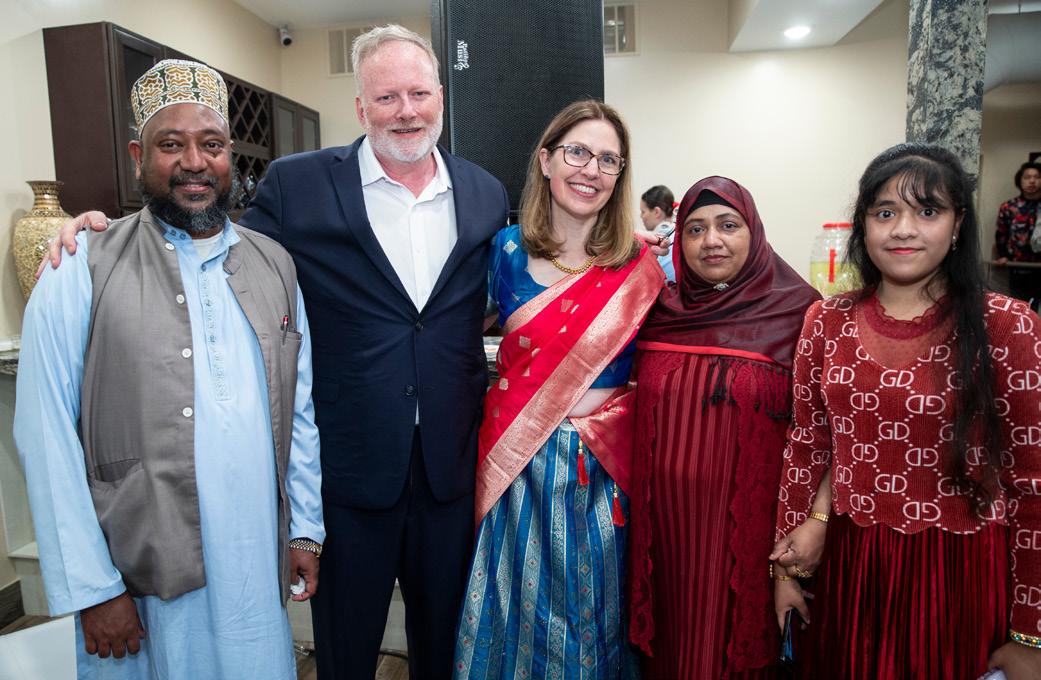

I hope that all of you who receive this report will read the stories of our inspiring students because your involvement is the basis for our work, and you are integral to our community. We often notice that students, family members, volunteers, and staff describe being at FORA as “healing.” I think that is because many of us have experienced an antidote to social polarization and isolation here. Becoming a part of our community helps all of us to understand deeply that we can trust the good intentions of strangers— even of people who seem entirely different from us in almost every way.
Every day we are changing lives. To give one common example, five students from a single Afghan family who joined FORA last summer were all scoring in the first percentiles for reading and math—even after being in public school for more than a year. After twelve months of working with our tutors, each one of them is improving tremendously—two are on grade level in math; one is on grade level in reading. The whole family’s trajectory has changed, and our volunteers and supporters have been an instrumental part of that transformation.
Experiences like these are so powerful that many of our volunteers and donors tell us that FORA has impacted their lives as well. Each time that happens we are learning to trust the reality of social connections that bridge our cultural identities and our political opinions. In doing so, all of us—volunteers, donors, staff, and refugee families— are working together to experience the prototypical “American” experience: unity in diversity.
Robert Putnam would be so pleased. The sense of belonging to a community as diverse as FORA’s is exactly what I need at this moment and maybe what we all need. I hope that each one of you reading this letter will experience a sense of pride and well-being associated with your own connection to this growing community. This is the time of the year we need to ask for your financial support. People typically give more to groups of people who they perceive as sharing their identity—such as members of their own religion and those who share their ethnic origin (bonding organizations). Raising funds for non-profit organizations like FORA that bridge diverse social identities is much more challenging. So, I ask you directly. And I ask you with deep conviction of purpose. Would you please support FORA financially now? Please give as much as you can that also brings you peace and joy.
By supporting FORA, you are not only empowering refugees through education, but you are also combating a societal epidemic and working to build the kind of civic society in which all can participate, side by side, together, towards a common purpose of healing the broken parts of ourselves and our society.
Together, we will all be less alone. And together, we are forging opportunities for refugees in America and forging opportunities for America itself.
Sincerely,

Kathleen O’Connor, Ph.D. Co-founder and Chief Educational Officer FORA
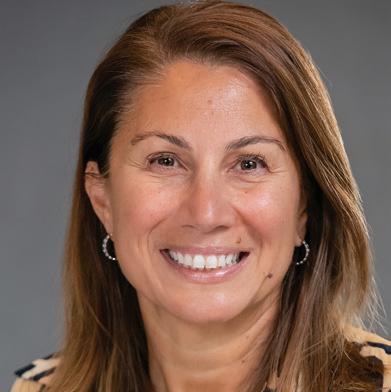
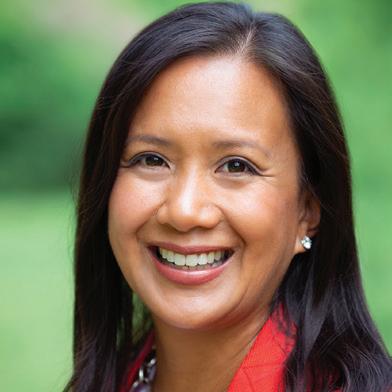
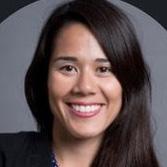
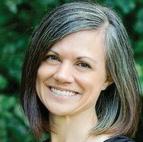
Melike Oncu (President) is the General Counsel of Jobot, which combines top performing recruiters and AI technology to provide the best possible service to clients and candidates. Prior to her position at Jobot, she was the General Counsel of the International Code Council, which she joined in October 2008 as Assistant General Counsel. As General Counsel, Ms. Oncu oversees all legal affairs for Jobot. Ms. Oncu holds a juris doctorate from George Washington University, and a bachelor’s degree from Lafayette College. She began her legal career as a corporate attorney with the law firm White & Case, LLP. She also served as Of Counsel for the law firm of Bingham McCutchen, LLP. She currently lives in Chevy Chase, MD with her husband, two teenage daughters and her dog.
Lena Jessen (Vice President) is an active and engaged community volunteer. In addition to working with FORA, Lena currently also serves as board chair for High Jump—an organization providing academic enrichment to academically motivate middle schoolers in Chicago, and she sits on the boards of the University of Chicago Laboratory Schools and Northfield Mount Hermon School as a co-chair of the Family Council. Lena has worked in marketing, sales and consulting roles in firms working in the biotech, skincare and medical device spaces. Lena has a B.S. from Southern Methodist University and a MBA from the University of Chicago.
Daione “Dai” Mitchell (Secretary) holds a Bachelor’s degree in International Marketing from the American University in Washington D.C. Daione has been an active and engaged parent volunteer at the Latin School of Chicago and formerly held the position of Parent Association president and Board of Trustees. She is also a member of the USA Lacrosse Foundation Board. She is experienced in marketing research, relationship managing and team building. She previously served on the board of the Comer’s Children Hospital Women’s Board, Brazil in Chicago among others. She is passionate about athletics and while at American University she was a member of both Division 1 field hockey and women’s lacrosse teams. Currently, she coaches both field hockey and girls lacrosse at Latin. Born in Brazil and having lived in Los Angeles, New York, Washington D.C. she has made Chicago her home. In her free time, Daione plays tennis and loves to travel and experience new cultures.
Christine Spears (Treasurer) hails from Minnesota, and recently returned to the Minneapolis area after 20 years in Washington, DC. After starting her career with KPMG, she pivoted to pursue a career in non-profit Finance with International Justice Mission, a non-profit that strengthens and reforms local legal systems to work on behalf of the under-resourced. She provided leadership in Finance and HR for 12 years as the organization expanded its scope and reach. She has since served as Director of Finance for Power to Decide, a national reproductive rights organization, and as an accounting consultant to local DC non-profits. Christine currently serves as the Controller and VP of Finance for Special Olympics International where she is responsible for accounting and finance operations and strategy. Christine is passionate about leveling the playing field and ensuring equal access for all to information and resources, and is inspired and compelled by FORA’s mission. She has an 8th grade son and 10th grade daughter, and in her free time she enjoys spending time at the gym, walks around the lake, trying new restaurants, and watching her children play volleyball and basketball.
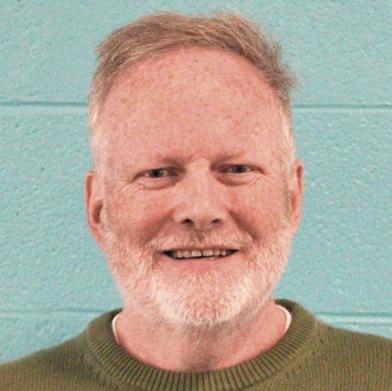
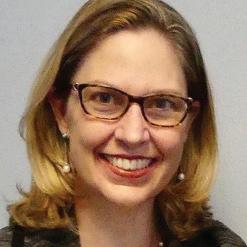
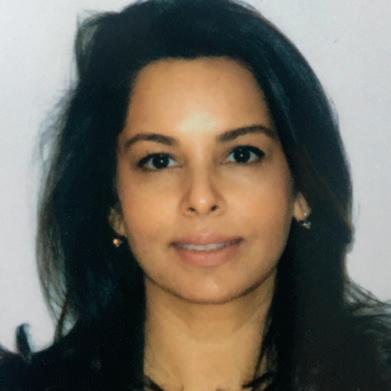
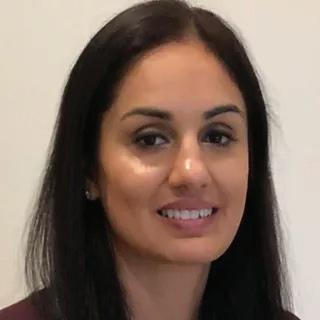
Michael O’Connor (Co-Founder and Managing Director (Volunteer)) attended Amherst College and Harvard Law School, where he was President of the Harvard Legal Aid Bureau. While in school, he worked for Cesar Chavez and the U.F.W., the Federal Reserve Bank of New York, the Southern Center for Human Rights, D.C. Public Defender Service, and the United States Department of Justice, Office of Policy Development. He has been a Senior Trial Attorney for the Civil Rights Division of the United States Department of Justice, an Associate Counsel to the President of the United States at the White House, an international field worker for Catholic Relief Services in war-torn Madagascar and Kosovo, and the Regional Director for South Asia for International Justice Mission.
Kathleen O’Connor (Co-Founder and Educational Programs Director (Volunteer)) is a child developmental psychologist with a B.A. from Amherst College, an M.A. from Harvard Education School and a Ph.D. from Vanderbilt University who specializes in working with war-torn youth. She has worked in Madagascar as a volunteer English teacher and as a math and science teacher at the American School of Antananarivo. She later worked as an educational consultant in Belgrade and spent several years as an assistant professor of psychology at Dominican University. She was recently nominated by the American Red Cross for the 2022 Hero Award and in 2021 she was awarded the Valuing Difference Award for community activism and achievement by the Wingspan Project and Live Oak Chicago.
Zainab Baig, MD (Board Member) is a Board Certified Internist who has practiced as a Hospitalist and Practice Builder at several hospitals across Chicagoland for over 20 years. She recently accepted the position of regional Director at Humana where she helps physicians and healthcare facilities manage complex in patient care. Zainab is also on the Board of AMPI USA—a non profit providing affordable healthcare to the poor and refugee communities across the world. She did her residency at a Cornell University hospital in New York City and studied medicine at Osmania Medical College in Hyderabad, India. Zainab is passionate about expanding access to healthcare and education for underprivileged communities, and has been an active volunteer and fund raiser for FORA since 2019.
Farah Noor Cheema (Board Member; President Emeritus) was born and raised in Pakistan, where she earned her medical degree with honors at King Edward Medical University. After immigrating to England, then the U.S., Farah was moved by a common theme: the unifying, cyclic benefits of community service. She became impassioned to promote self-sufficiency and empowerment through educational advancement. Thus, over the last decade, she has held volunteer leadership positions at various institutions, including the Avery Coonley School, the University of Chicago Laboratory Schools, the Muslim Leadership Academy at the Islamic Foundation of Villa Park, the Islamic Council of North America, and many interfaith community unification endeavors between Muslim, Christian and Jewish places of worship. She has also served on the board of the U.S. branch of the Hunar Foundation, and collaborated with both Viator House of Hospitality and the Human Development Foundation. Farah is currently managing a busy healthcare practice and lives in the Greater Chicago area with her husband and four kids.

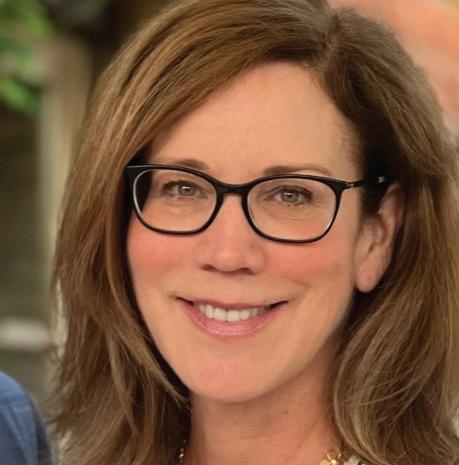
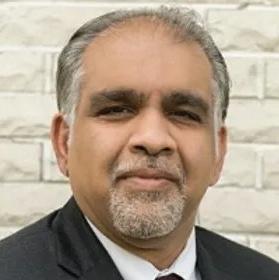
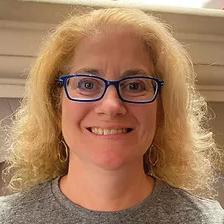
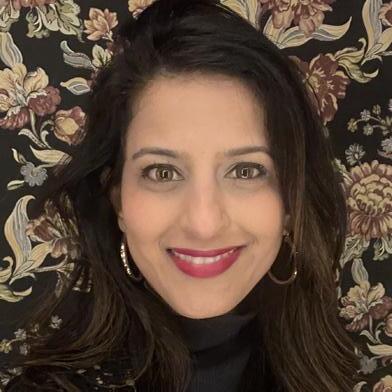
Bill Forsyth (Board Member) is a founder and Partner of Frontier One LLC and its predecessor organization, Frontier Partners, an investment consulting firm launched in 1993. He is a Founder and Director of the New Frontiers Foundation, which provides educational support for underserved youth in Chicago. Bill is a past Chair of the University of Illinois Alumni Association and is a member of the University of Illinois Foundation. Bill has also served on the Board of Trustees for Loyola Academy in Wilmette, IL, and he is a former director of Horizons for Youth and Tutoring Chicago. Bill earned a BS from the University of Illinois and an MBA from the University of Chicago.
Julie Schulz Halbower (Board Member) was born and raised in the Chicago area. She received a bachelors of arts degree in Economics from Duke University and a juris doctorate from Northwestern Pritzker School of Law. She began her legal career in New York City practicing corporate law with the law firm, Coudert Bros., and then moved back to Chicago to practice commercial litigation with Holleb & Coff. From there, she was appointed Associate General Counsel at the accounting firm, Grant Thornton LLP, where she worked for several years before retiring to focus on her family. She has also been on the boards of other charities in the Chicago area that benefit children and healthcare. She currently splits her time between Kenilwoth, IL, Naples, FL, and Exeter, NH, where she lives with her husband Matthew, two daughters and three dogs. Her daughters have joyfully volunteered at FORA and found the experience to be very meaningful.
Shaik Kaleem (Board Member) got his Bachelor’s Degree in Electronics and Communications Engineering from University of Madras then his Master’s degree in Computer Engineering from Wayne State University, Detroit after migrating to the U.S. in 1985. He has worked for Interface Electronics, Hughes Network System and for 28 years at Cisco Systems, Inc, where he was the Senior Director, Global Business Development for various Cisco Businesses (Collaboration, Networking, and IOT). In addition, Kaleem is on the board of a few startups. Kaleem has been associated with Islamic Foundation (non-profit organization) for the last 30 years and has served as one of the Board of Trustees and is the chairperson for Technology & Communications Committee. Kaleem lives with his wife in the Chicago area and has been passionate about giving, community service, and refugee settlement and has successfully organized various community fundraising drives.
Wendy Kaplan Miller (Board Member) attended Amherst College where she co led the Cambodian Refugee Tutoring Project. She taught fourth grade at the Bullis School in Potomac, MD. After graduating Harvard Law School, she served as an AmeriCorps attorney doing domestic violence work at Western Mass Legal Services and a housing attorney at Greater Boston Legal Services. She has been on the boards of Raising A Reader Massachusetts and the Cornelia de Lange Syndrome Foundation. She has been on the selection advisory committee for the GreenLight Fund; co-chaired a philanthropic giving circle at the Palo Alto Jewish Community Center; and volunteered in the Ravenswood School District. She currently lives in Laguna Beach with her husband and their dog, with their two sons, former FORA tutors, nearby in Los Angeles.
Nausheen Zaidi, MD (Board Member) is a Board certified Maternal Fetal Medicine specialist/ Ob/GYN who practices in Chicago. She did her residency at UIC and fellowship at University of Chicago Hospital. Nausheen grew up in New Orleans has three children and currently lives in Chicago for the last 20 years. She enjoys traveling and movies in her free time. She has been involved in FORA with volunteer work since 2022 and believes in the mission of promoting education for these refugee children to help them be successful in life and their future generations.
More than 100 refugee children, their 180 pre-literate parents, and their under-school-age siblings are receiving the support they need to get on a path toward becoming active and joyful members of our community, full of potential and hope.
Imagine finally escaping to a new country, eager to start a new life free from persecution and full of opportunity. You’ve probably never been to school before, or at the very least not for many years while you were waiting to be resettled after fleeing your home country. But when you arrive, you find a system unprepared for meeting your needs, and you find yourself falling through the cracks. This was the experience of many of the children who come to FORA.
Refugees face a long and arduous journey to find permanent resettlement, with an average wait of ten years after fleeing their homelands. During this exile, many are forced to live in camps or slums without any access to an education. As a result, countless refugee children around the world miss years of schooling. This gap is so prevalent that educators have coined a new term—“SLIFE,” which stands for Students with Limited or Interrupted Formal Education. Most refugee children fall into this category, entering school significantly behind or completely illiterate.
When they finally arrive in the United States, hopeful and eager for a fresh start, the education system fails to recognize their unique needs. Despite having previously received little or no education, they are assigned to grades based on their age, so teenagers who cannot read or write find themselves taking U.S. History or English literature. Unsurprisingly, lessons go completely over their heads and they are left feeling defeated. Despite all the sacrifices they and their families have made, success remains out of reach. In fact, fewer than 10% of SLIFE students in the U.S. go on to graduate from high school.
FORA is dedicated to flipping the script on this story. These children can thrive; they just need a little specialized help—someone to believe in them and give them a space to learn with educational resources tailored to their level. That is what we do at FORA. We respond to the issue with precision and joy, restoring hope to these children and their families. FORA students are breaking through the glass ceiling. They are classified as SLIFE, but they are on track to not only graduate high school, but to go on to college.
Thanks to more than 48,000 hours of individualized tutoring last year alone, we’ve seen these children transform—from feeling overwhelmed and out of place to gaining confidence and rediscovering their love of learning. FORA isn’t just a tutoring center; it’s a place of transformation for our 100 students, their families, and their futures.
Our tutoring program is made possible by grants from the Jewish United Fund, the Council of Islamic Organizations of Greater Chicago’s Zakat Chicago, the Lohengrin Foundation, the James B. Boskey Memorial Fund, the WC and EJ Thornton Foundation, the W.P. and H.B. White Foundation, the Patrick and Anna M. Cudahy Fund, the Helen Brach Foundation, the Dollar General Literacy Foundation, general operating support from the Judy and Peter Blum Kovler Foundation and the New Frontiers Foundation, recruitment support from the DePaul Migration Collaborative, and your donations. This incredible progress is thanks to you, and we need your continued support t o keep these incredible results going.
Hours of Individualized Tutoring 100 Refugee Children =
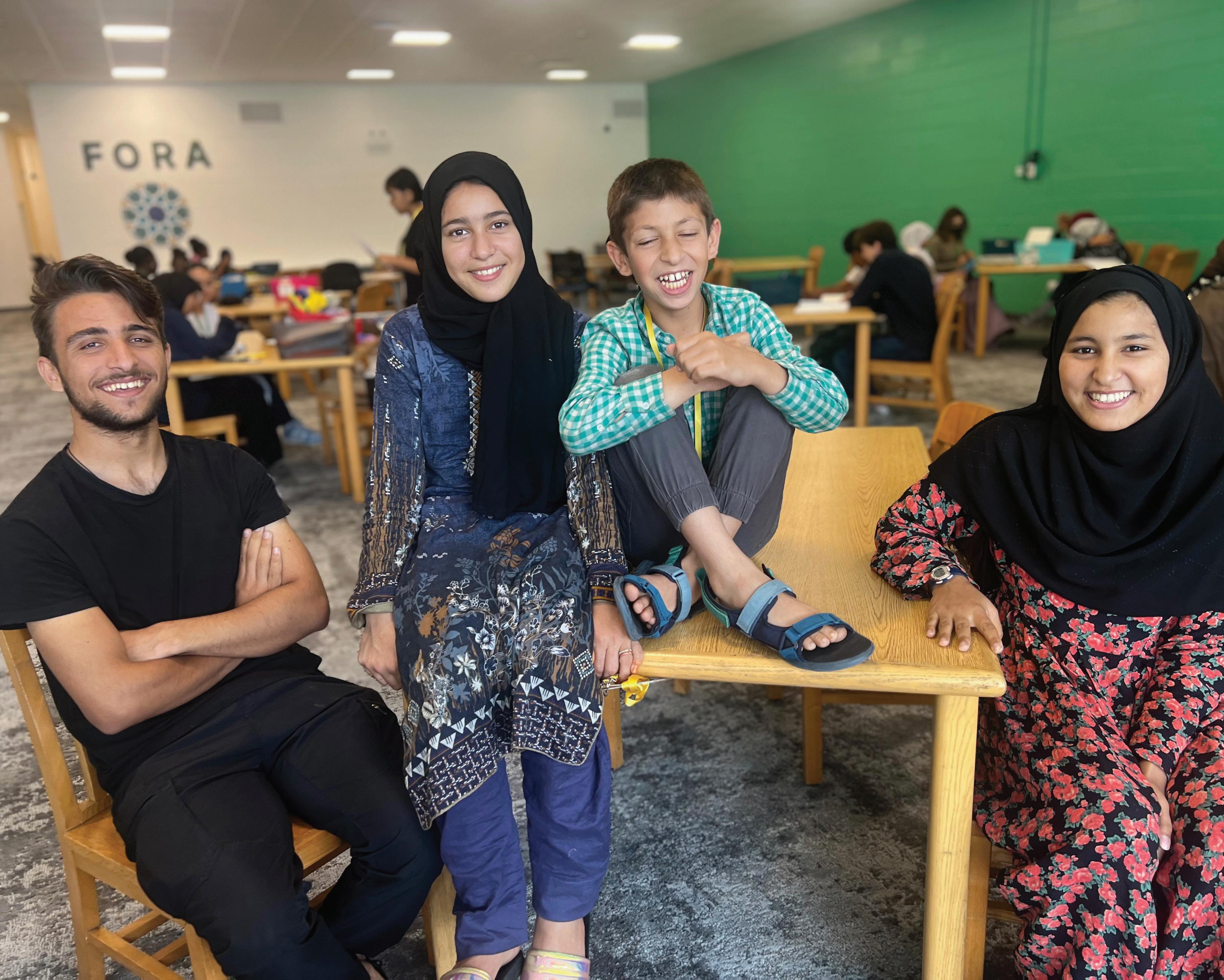
Bilal, his parents, and his six siblings came to the U.S. in February, 2023, after the Taliban takeover of Afghanistan. They were escaping mortal danger; his father had worked with the American military.
When they arrived in America, Bilal knew little English. “I was talking just a little bit; like ‘Hi, how are you?’ ” he said. So when he started 9th grade at Mather High School, “at first I was a little shy. I didn’t speak with anyone, any teachers.” Everything was unfamiliar, from the language to the way here it was the students, not the teachers, who traveled between classrooms.
But FORA changed everything. Bilal learned from his tutors, from FORA’s tutoring apps, and through reading.
“My English was very bad; now my English is very good,” Bilal said. “FORA has been very helpful for my children,” said Bilal’s mother, Hasina, with Bilal interpreting; she has seven children, all of whom are getting tutoring.
“Now my children will be in a good place. They will go to college. They have to be successful.”
Now in 11th grade, Bilal is indeed anticipating his next steps after graduating. “I will look at four-year colleges,” he said. “My favorite subject is computer science.”
“I am very happy,” his mother said. “I have come here for all the children.”
FORA students are making incredible strides in both reading and math.
Over the past year, their growth in nationally-normed standardized tests has been remarkable. In reading, the median percentile rank increased from 11 in the spring of 2023 to 22 in the spring of 2024, a statistically significant gain (p<.05). In math, the progress is even more striking—the median percentile rank rose from 37 to 53 in just one year, once again reflecting statistically significant improvement (p<.05) based on a two-tailed paired t-test.
These gains are especially exciting when you consider that most students across the U.S. maintain approximately the same percentile rank year after year. To see our students’ scores rise at this pace confirms that FORA’s approach is working—they are catching up to grade level, and in some cases, surpassing it. The median math score is now within the 40-60 range, meaning our students are achieving at grade level!
These achievements are astounding. Students who once felt lost and overwhelmed in the classroom are now actively participating, asking questions, and showing their teachers that they are not only keeping up, but excelling, paving the way for long-term success in both academics and life. All of this progress is possible because of your investment in their futures.

Khairul, 12, his sister Zahirah, 10, with their friend, Sharifah Nadia, 7, Rohingya refugees from Myanmar
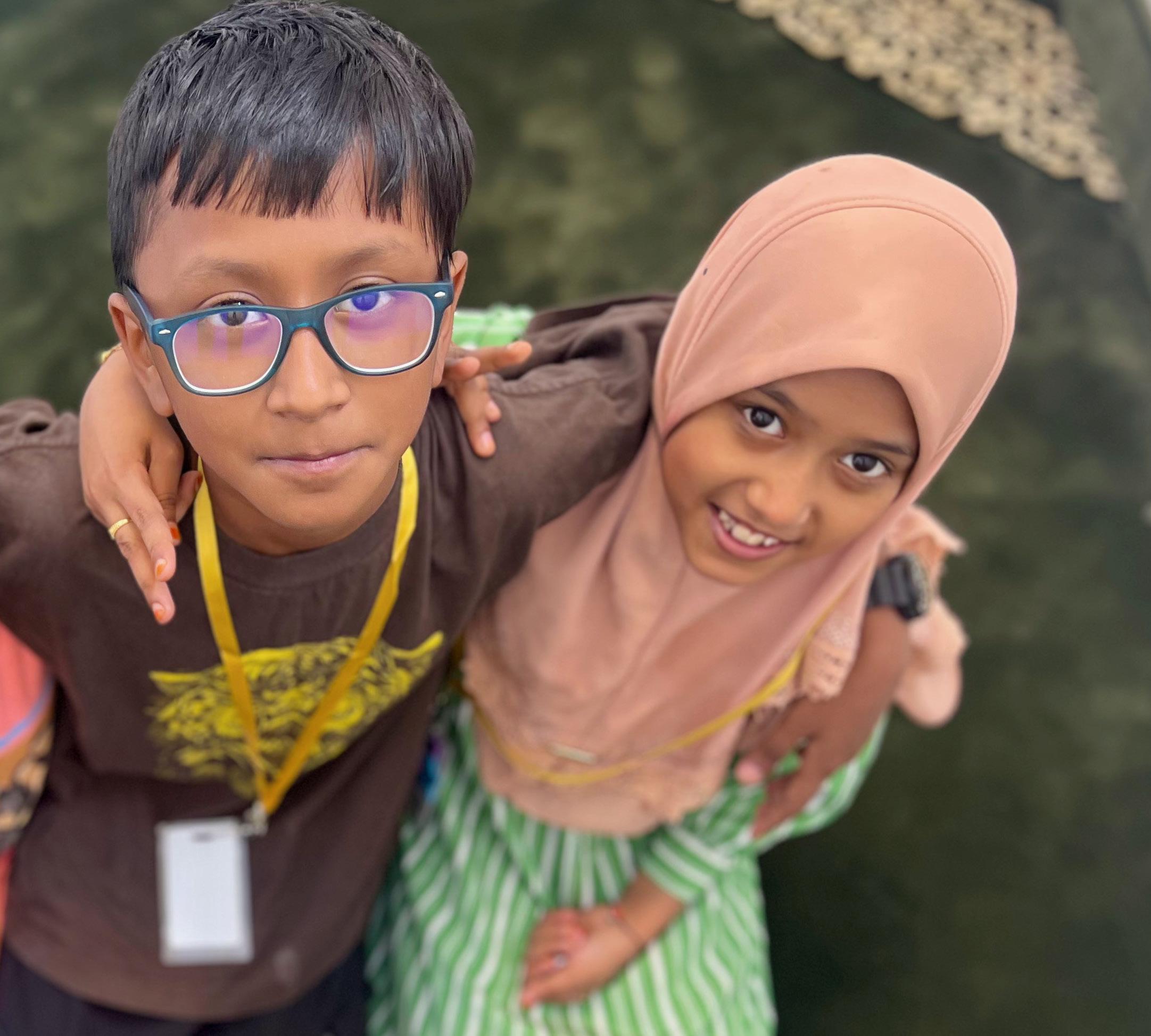
Zahirah knew her marching orders when she came to FORA. “I had to improve my grades. And I had to learn to have better manners.” She thinks she has succeeded at both, though she has some self-criticism. “I still have attitude,” she conceded. “Yeah, attitude!” her brother, Khairul, agreed gleefully.
The siblings and their friend Izwan were Rohingya refugees in Malaysia before coming to the U.S. Izwan remembers arriving at his new pre-kindergarten class and being too scared to talk. He lost that fear at FORA. “I got to learn new things, and I got to play,” he said. They all relish the hours they spend here. “I like FORA because it helps us get better grades, and I get tutors that are nice to me and help me improve myself,” Zahirah said. “It’s a second home to me. FORA is family.”
Khairul intends to get top marks this year so he can earn his school’s traditional eighth grade reward: a trip to Six Flags Great America. He loves playing math games and has been reading the “Percy Jackson and the Olympian” series. “I’m on book five, and in the chapter I’m on, Percy kisses Annabeth!” he reported, prompting much embarrassed laughter. “And I’m not even kidding! That really happens!”
Together, we are...
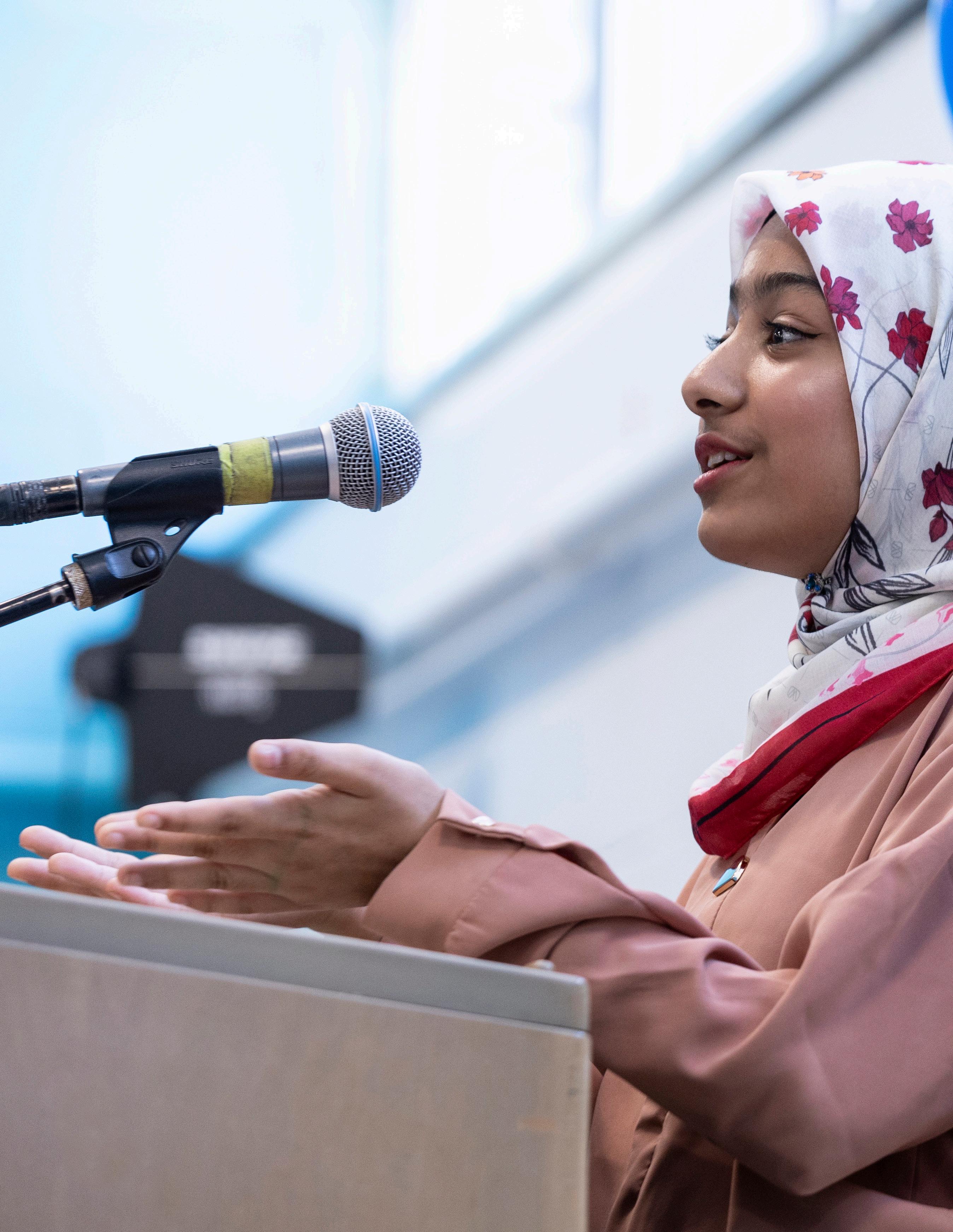
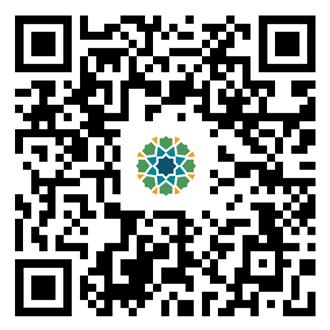
Learn more about our mission and strategy. Scan the QR code to watch the video.
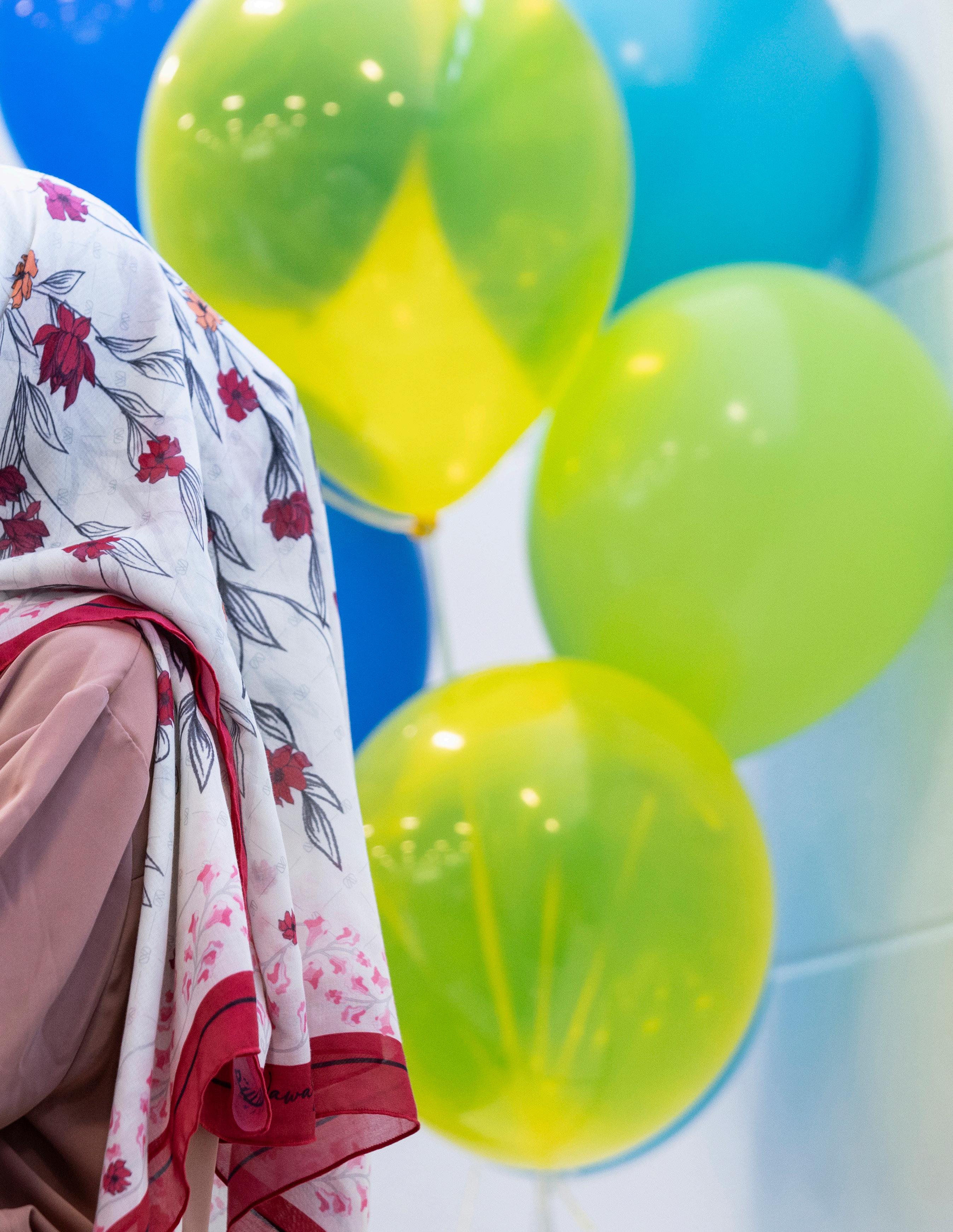
FORA is the only after-school learning center in the country fully dedicated to unlocking the potential of SLIFE refugee children through personalized, intensive foundational education. Each year, we provide over 48,000 of hours of High Impact Tutoring (HIT) to over 100 refugee students, designed to bridge educational gaps and set students on a path toward success. We are here to empower refugee children, ensuring they have the opportunity to not only catch up academically but to excel in every aspect of their lives.
These students have faced immense adversity—displaced from their homes, separated from family, and forced to live in refugee camps or slums. Despite these challenges, they arrive in a new country full of hope. At FORA, we give them the tools and support they need to turn that hope into reality. With our guidance, these children are not just overcoming the trauma of their past but are rediscovering their potential. Watching them flourish academically and grow in confidence is the ultimate reward, proving that every child, given the right opportunities, can achieve greatness.
FORA parents are empowered to support their children’s education, leading to soaring learning growth, school success, and joy!
Imagine being a Rohingya refugee parent who has finally made it to the United States. Your child now has the opportunity for the education you never had—the chance at a future you’ve always dreamed of for them. But as they enter school, you begin to realize that simply being enrolled isn’t enough. They’re struggling, and you don’t know how to help. The language is unfamiliar, the system confusing, and you feel lost. You want to be there for them, to support their learning, but you’re unsure where to start, and it leaves you feeling powerless.
FORA’s Family-School Partnership program, made possible by grants from the Jewish United Fund, the Helen Brach Foundation, the W.P. and H.B. White Foundation, and your generous support, empowers parents to participate in and support their children’s education, giving them the tools to engage confidently while ensuring that students receive the academic support they need to succeed.
FORA’s FSP team works closely with families and school personnel, keeping parents informed about their children’s grades, attendance, and progress. When challenges arise, FSP brings together parents and school officials to identify issues and implement solutions, ensuring students receive the wrap-around support they need to succeed. With parents, teachers, and FORA staff collaborating, student success has soared.
Your generosity allows us to keep breaking down barriers and creating a supportive network where every child has the chance to thrive. Please help us continue this important work.
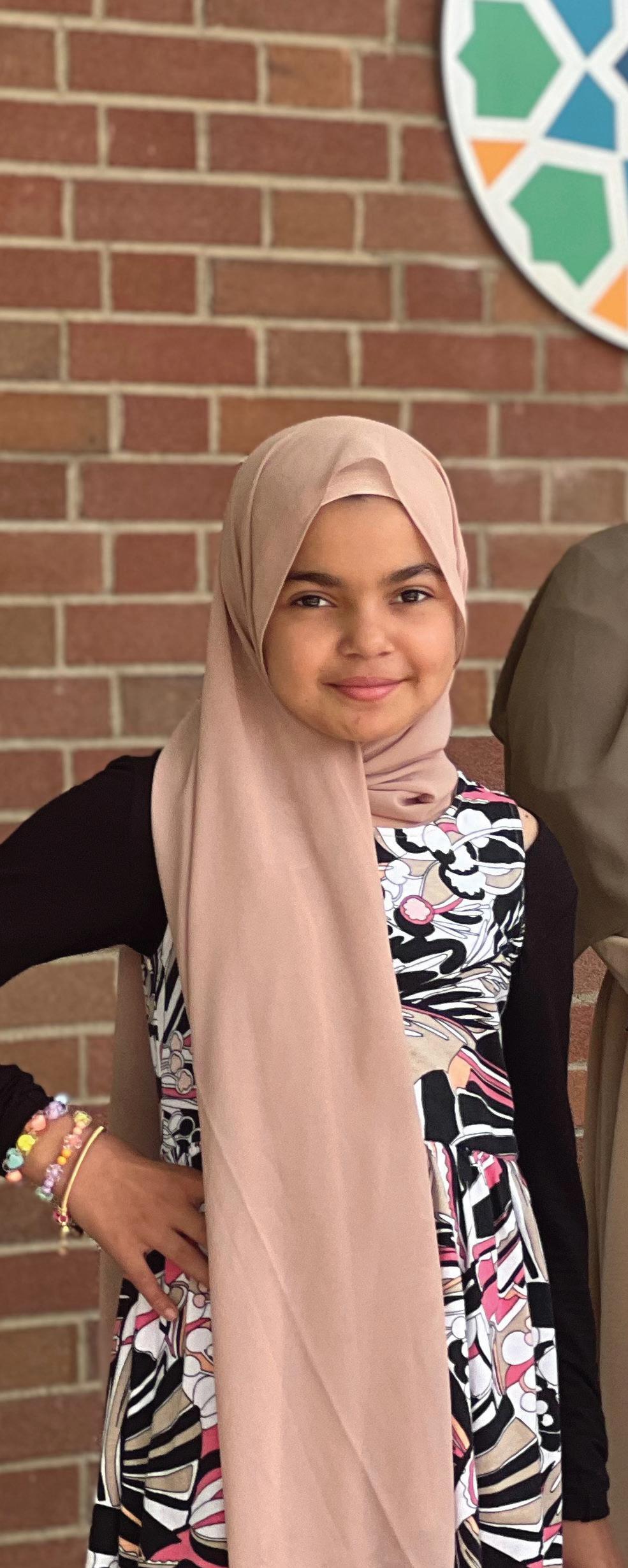
From September 2023 to August 2024, FORA staff have conducted more than 5,156 interventions to support students, parents, teachers, and school staff, including conducting 1,306 parent meetings, 765 academic check-ins with students, 282 meetings with school personnel, and facilitating 182 meetings between parents and their children’s schools.
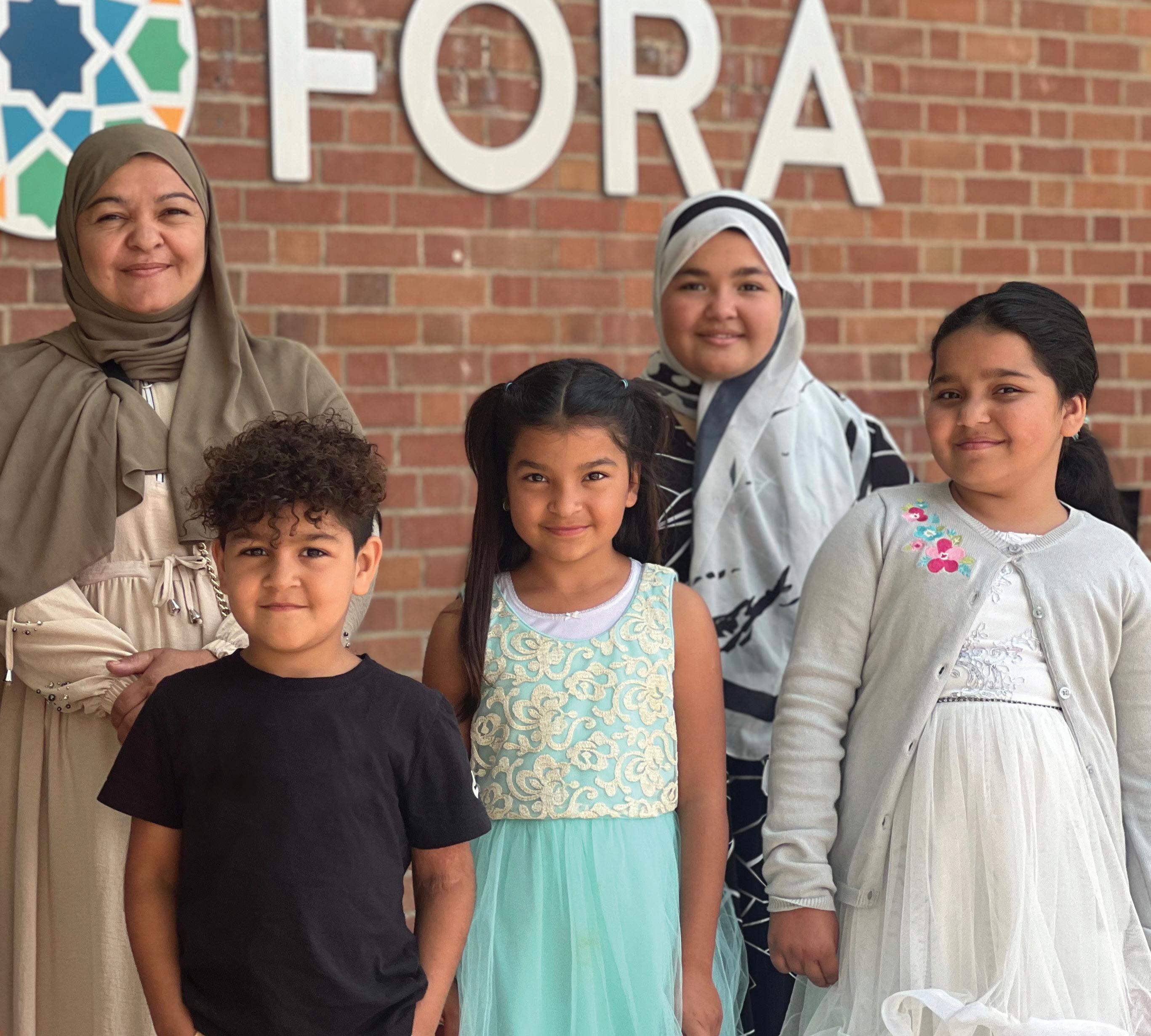
The sisters were only five and four years old when war was ravaging their homeland. But they were old enough to be frightened. “There were some people killing people in Afghanistan,” said Fatima. “We were scared,” Aisha said. Their father had served in the Afghan army and worked with the U.S. military, placing him in danger when the Taliban took over. The family—the children totaling five sisters and five brothers—came to America to start new lives. Fatima was glad to be here. “They were not shooting people. This is a safe place for us,” she said.
School wasn’t easy at first. “It was kind of confusing—but then I came to FORA and learned a lot of English,” Fatima said. “I was nervous to talk to people,” said Aisha. But once she learned English with FORA’s help, “it was fun.” But they heard grim news from back home. “They started closing schools for girls,” Fatima said. “I’m sad for them.”
She is thriving in school and at FORA, where she especially likes playing math games. Aisha enjoys math and reading. Back in Afghanistan, girls are now forbidden from attending school after sixth grade. Fatima, who is in fifth grade, knows what her fate would be if she were still there. After finishing sixth grade, she said, “I would be home.”
Our Education in Action programming has flourished this year and our students have been building critical hard and soft skills in areas from robotics to public-speaking.
In our second year of VEX Robotics programming, thanks to a generous grant from the Society for Science, we proudly sent four teams to a regional competition—two high school and two middle school teams. Over the fall and winter, these students designed, built, and programmed robots to tackle this year’s VEX challenge: pushing balls over a tube barrier into their designated scoring area. Students applied the scientific method to develop and test their designs, perfecting their robots and enhancing both their technical skills and their confidence.
Our Model UN students have thrived through workshops and an intensive summer course. They’ve actively developed their abilities to construct compelling arguments, engage in debates, and refine their public speaking skills. Their hard work has paid off, as they’ve grown in both confidence and communication, stepping up as more articulate and assured leaders.
The girls in our GirlUp FORA club, part of the UN-sponsored global organization, have also taken charge of empowering each other and improving their communities. This summer, they organized and hosted a vibrant Culture Day, proudly sharing their diverse backgrounds with the FORA community. Through presentations, traditional attire, and foods from their countries, they celebrated their heritage while building stronger connections. By breaking down language barriers and bridging age differences, these young leaders have created a more supportive, united community at FORA.

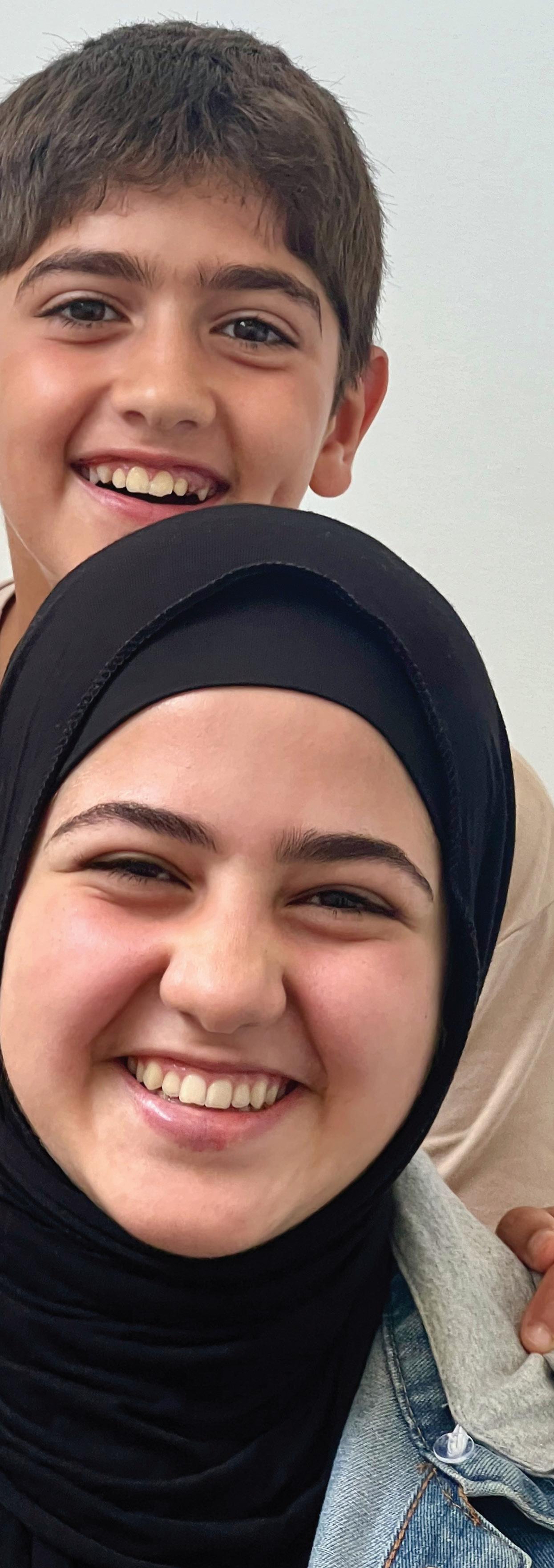
Lana was two years old, and Osama only six months old, when their family left war-torn Syria. Even as children, when they became refugees in Jordan, they swiftly learned that Syrians were unwelcome. Their father was not allowed to get a driver’s license. When they finally were allowed to attend a public school in Jordan, Syrian children had to go to class in the afternoon, separately from Jordanians. “People said bad things to Syrians,” Lana said. “We were playing when a Jordanian girl said, ‘You Syrians, get out of here! This is my country.’ ”
Their father worked hard to earn enough money to send them to private school. But after only a year, Covid hit. Businesses everywhere shut down; and their father was unable to work. Lana and her brother went back to public school. The teachers were bad, Lana said, and one hit Lana on the hand when she couldn’t answer a question, prompting her mother to go to the school and furiously complain.
But their days as refugees in Jordan ended last year when they were approved to migrate to the United States. They were resettled in Chicago, and got off a plane in a new world. “I was confused,” Osama said. “This is America? What country was that? I was not good at English. I was nervous.” He spent his early weeks in school in silence. “I would just look at the teachers.”
Lana was similarly miserable. “I was scared,” she said. “I knew English, but I didn’t really speak it. That first week, I hated school. I didn’t know anyone who spoke my language. It was terrible. I sat by myself. A girl called me stupid—but I called her stupid back.” But after a week, Lana made a friend in school who spoke English and helped her. And within a few months, the family found its way to FORA. “It was really, really good,” Lana said. “They help me with my homework, and with anything I don’t understand.”
Osama is now reading the young adult novel “Wonder,” playing soccer with friends outside FORA’s new office, and thriving on math games (“I always win!”).
Lana graduated middle school with honors and is anticipating high school with classic teenage jitters. “Next year will be much harder,” she worried. But even if it is, she’ll be fine. She will have FORA.
FORA is focused on filling gaps in math and reading so that school becomes enjoyable and meaningful.
The pedagogical strategy used is called High Impact Tutoring (HIT)—an educational intervention typically defined as five or more tutoring hours per week at a ratio lower than five students per tutor.
HIT is strongly associated with large learning gains. In 2021, the Annenberg Institute for School Reform at Brown University recommended it as the most effective intervention to combat pandemic learning loss, but FORA is the only organization that takes this approach with refugee students.
And because our students are some of the most disenfranchised in the world, FORA goes well above and beyond standard HIT practices.
Students come to FORA’s center for two hours every weekday after school—10 hours a week, year-round—and receive mostly 1:1 instruction on the fundamentals of reading and math. By the time current kindergarten students graduate high school, they will each have had more than 6,000 hours of individualized FORA tutoring with curricula that are tailored to their individual needs.
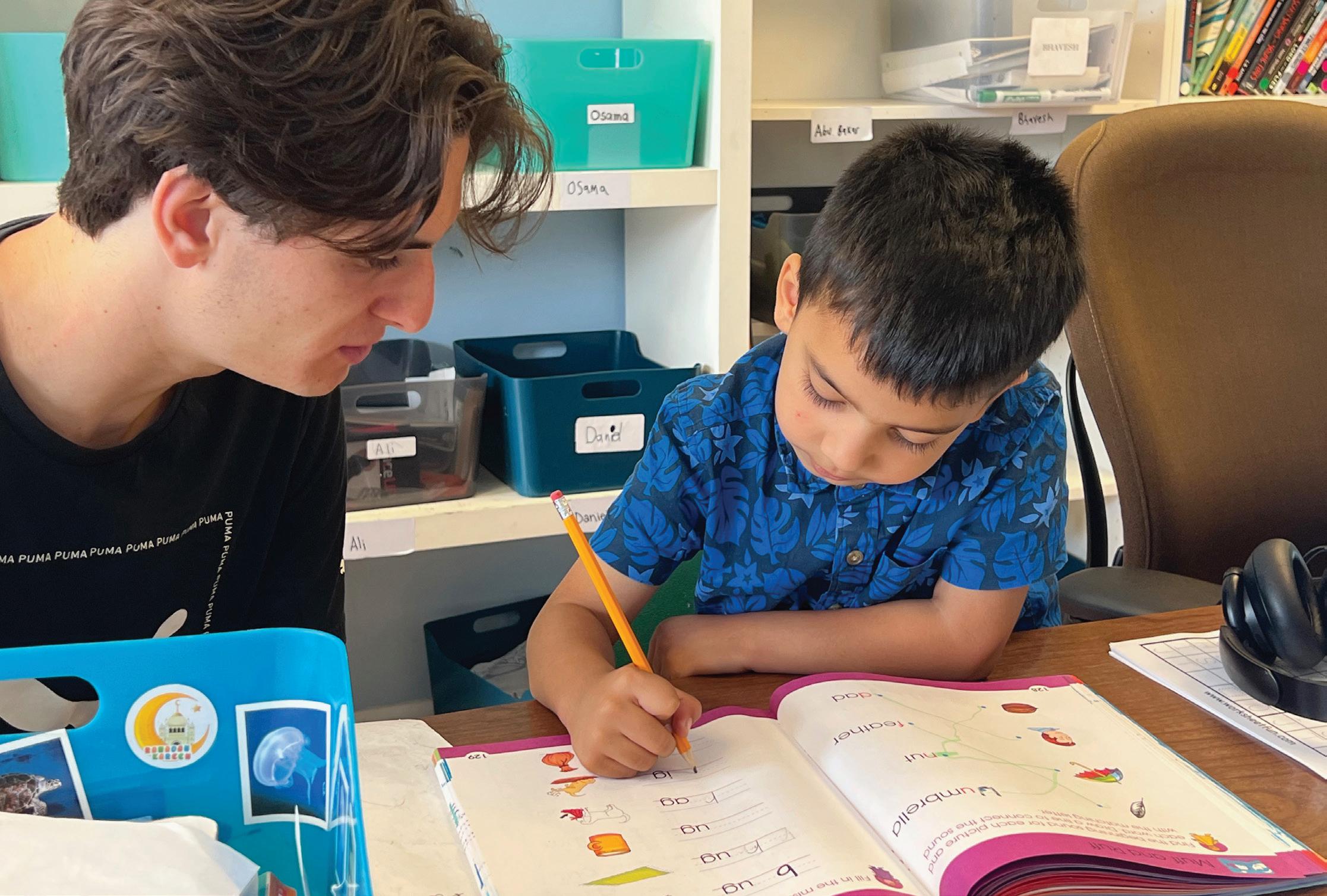
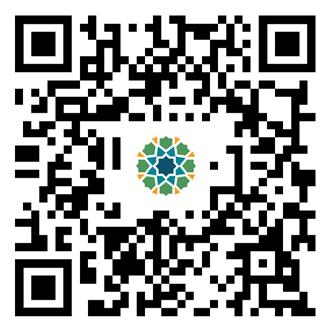
Roqia was living an increasingly perilous existence in Afghanistan, where the U.S. military was preparing to withdraw and the Taliban was taking control. She was continuing to train at a gym, where she was boxing and preparing to compete. But as a member of the much-persecuted Hazara minority community, she faced growing risk.
In 2021, her Kabul high school was attacked by a suicide bomber. More than 90 people were killed, many of them girls leaving school at the end of the day. Roqia, who was injured by shrapnel, said she was one of only two girls in her class to survive. “For one month I don’t sleep,” she said. “Every night, I cry. I close my eyes and—oh, explosion!”
She returned to school two months later. Two months after that, the U.S. pulled out and chaos erupted. Afghans who feared Taliban rule rushed to the Kabul airport, desperate to leave the country. Without telling her parents, since she was certain they would forbid it, Roqia joined them.
She headed to the airport with a cousin, and ended up in the crowd packed against the wall outside the airport. Taliban guards beat her with cords, she said, leaving her bloody. She fell three times under the crowd. “People were walking over me,” she said. “I was about to die—hardly breathing.” But an American soldier reached down from the wall, and pulled her up and then inside the airport perimeter. Two days later, she and her cousin were on a plane to Qatar, en route to the U.S.
After three months in a refugee camp in New Jersey, they were resettled in Chicago. Roqia was happy to be safe. “God helped me – but back in my country, there is no more college for women. Women cannot work. If the Taliban see a woman and her hijab is not right, they take her to jail,” she said. “I’m not scared in America.”
But she didn’t know English. She wanted to learn, quickly, and become a nurse’s aide. She heard about FORA, and talked with Michael O’Connor about coming for tutoring. Alas, he told her, FORA was designed for schoolchildren; Roqia, in her early 20s, was too old. He suggested Truman College, but Roqia was not budging. “I said, ‘No, I’m coming here. I like it here,’ ” she said. Even though she
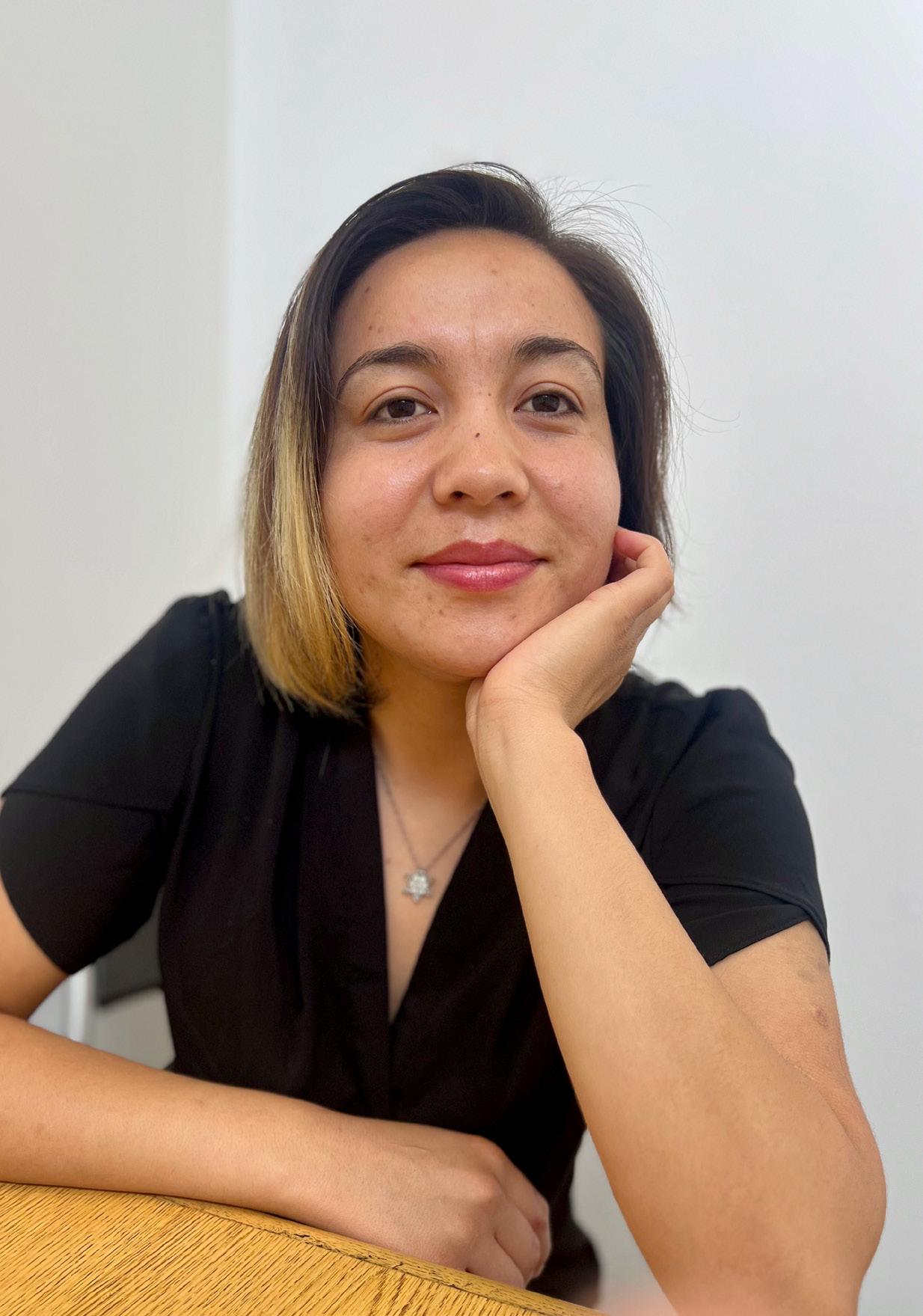
hadn’t been accepted, she started showing up. Every day, from 4 to 6 p.m. Which was no mean feat, since she was working from 4 a.m. to 2 p.m. as a cleaner at a hotel, and also delivering for Door Dash.
Michael arranged for tutors with extra time to work with her. Kathleen read with her. Whenever she saw a tutor who seemed free, Roqia would ask them for help reading.
“She was so pushy,” says Fazlulhaq Fayez, deputy head of FORA’s Family School Partnership Program, who speaks Roqia’s Farsi language and was serving as interpreter. “We told Kathleen, ‘She’s too pushy.’ But Kathleen said, ‘Good—she’s advocating for herself.’ ” Laughing, Roqia said, “Push, push, push.”
Roqia is now in a class that helps students improve their English in preparation for Certified Nursing Assistant training. She became certified in CPR. She has a job at a college cafeteria and every month sends money home to her family. She is boxing again at a Pilsen gym. “My life has changed since I’m coming to FORA,” she said. “People said, you can’t learn English; you’re too old.’ But Michael said, ‘You can do anything.’
This past June, FORA officially opened the doors of our new refugee empowerment center at 6435 N. California Ave in the heart of the West Ridge community. The move was not a large one by distance—the new building quite literally shares a wall with the small rental storefront we moved from—but for our students, our team and the FORA community as a whole, it holds meaning beyond measure.
“It provides students with the space to strengthen their independence, self-advocacy, and ownership over their future, and shows them how their hard work opens doors for new opportunities,” says Giulianna Larson, FORA’s Chief Outreach Officer. Giulianna was a tutor for a year in our old space before stepping into her current role, and she’s witnessed firsthand how important this transformation is.
“
Our move this past summer came as the culmination of a long and arduous process that began in May of 2022, when the city of Chicago put the former Northtown library building on sale. The building had served as a library for one of the city’s most diverse neighborhoods for 56 years and was a vital resource for its large and ever-growing community of immigrants and refugees. However, it had sat abandoned since 2018, when the city closed it down and opened a new branch on the corner of Western and Pratt. The building was right next to our small rental space and within walking distance for hundreds of refugee families in West Ridge. It felt like a sign that we were meant to continue its legacy as a center for literacy and learning in the community.
FORA was able to renovate this space as a result of our students’ dedication and efforts in their education. They are truly the inspiration and drive of our movement.”
–Giulianna Larson, FORA’s Chief Outreach Officer
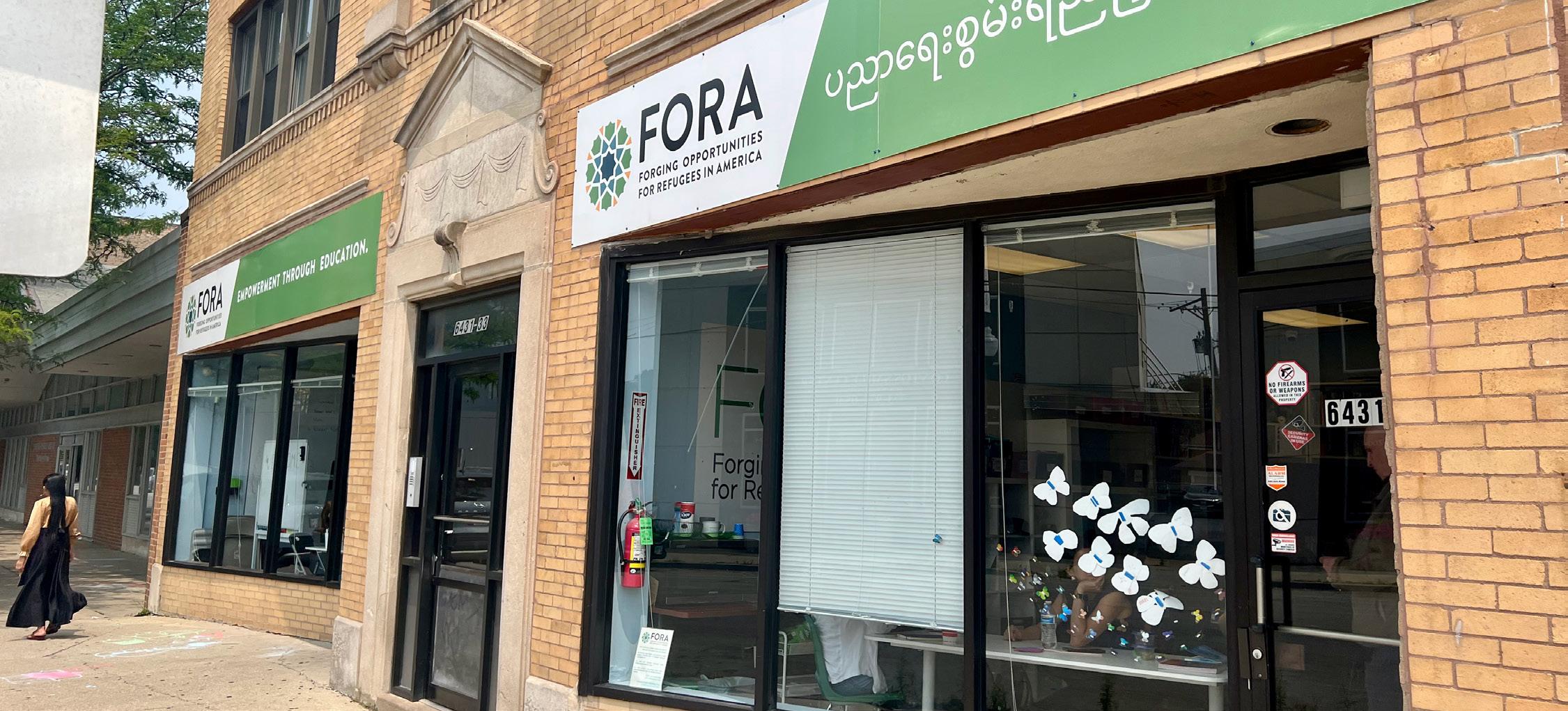
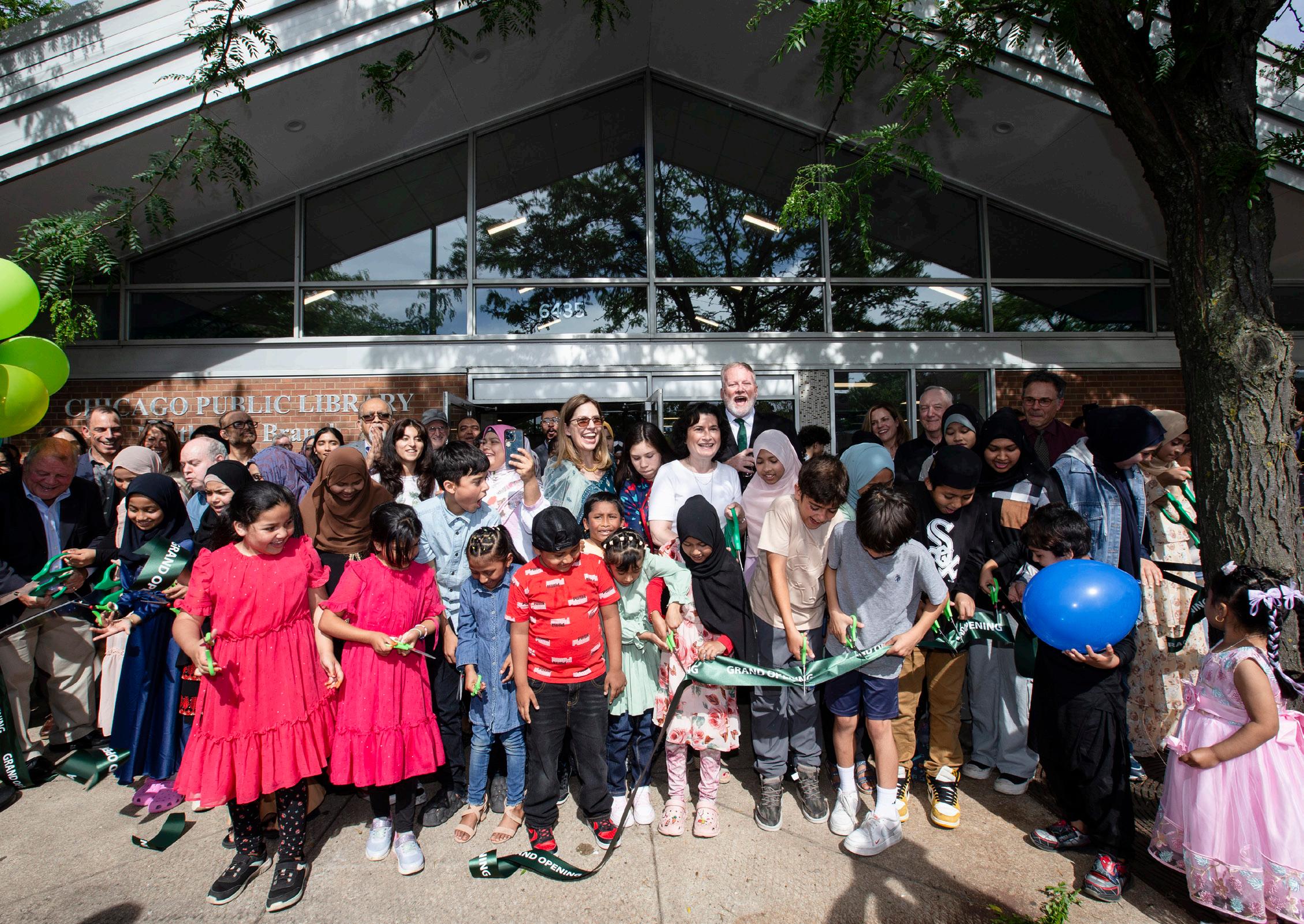
We placed a bid on the building and won, but just days after our purchase was approved in September 2022, the city of Chicago repurposed the space as a temporary shelter for asylum-seekers bused from Texas. While this delayed our plans by a few months, it also highlighted the building’s long-standing role in serving refugees and immigrants. Further bureaucratic hurdles pushed the sale to March 2023. We planned to start renovations right away and move in within three months, but new setbacks arose due to environmental testing clearance needs. Finally, by fall 2023, we received the green light to begin renovations, and within a few short months, we opened our new center just in time for FORA’s 2024 summer term.
Now, over two years since our purchase, we are finally seeing the fruits of our labor of love. FORA’s students are learning in spacious classrooms—nearly four times the size of our previous rental space. The rooms feature large, open areas with long lines of sight for proper student safety and are acoustically dampened, creating an environment perfectly suited for foundational learning.
The benefits are clear. With more space between tutor-student pairings, students can focus better with fewer distractions. They are thriving in their improved learning environment.
Alongside improved educational resources, the new building gave us the chance to create a space that truly belongs to the children and families we serve. We designed it with our community in mind, knowing that many of our students and their families are Muslim and have specific times during the day when they need to pray that may fall within tutoring hours. To be inclusive and respectful of their beliefs, we built two beautiful prayer rooms—one for men and one for women. We also added foot washing stations in the bathrooms, as it is traditional to wash feet before prayer. These spaces are open to everyone in our community and show our students and families that they are valued and respected at FORA. Their needs and culture are woven into the very fabric of the building. Students and families know that our empowerment center is their space.
This building symbolizes FORA’s growth and its connection to the community. It provides students and educators with a positive, comfortable environment for learning, striking a good balance between focus and relaxation. It serves as both a workspace for productivity and a comfortable haven that feels like home.”
–Byron Bell, FORA’s Director of Education
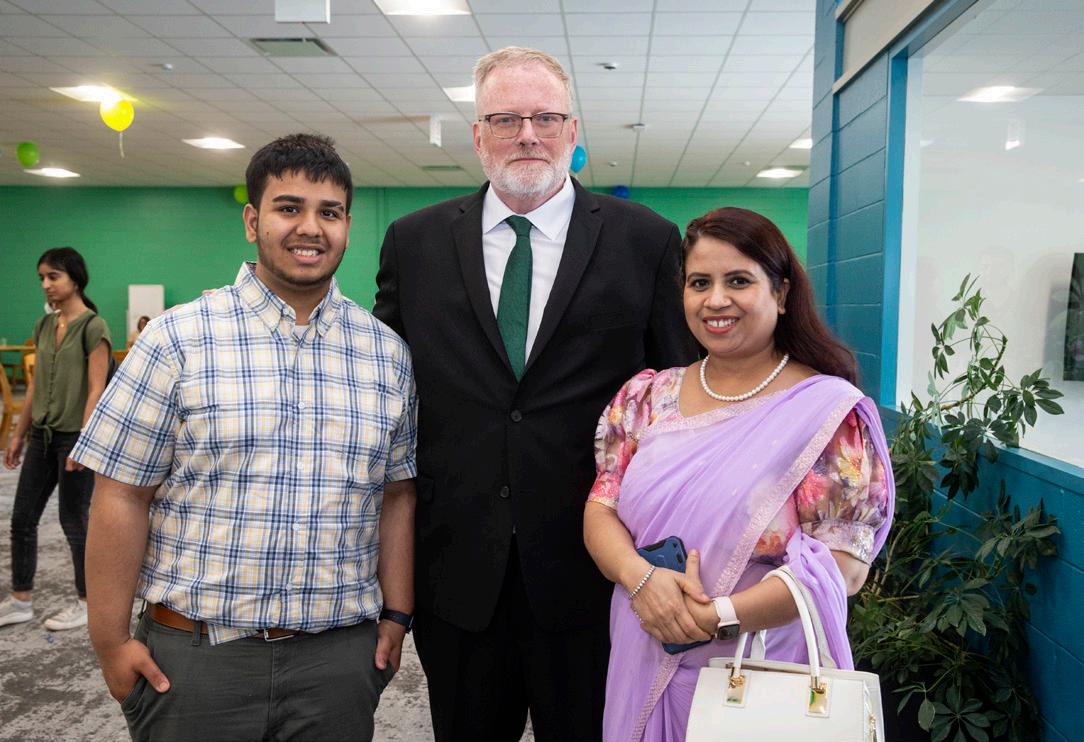
And it lays the foundation for FORA’s future. Owning this building ensures that FORA will be able to serve the West Ridge refugee community for years to come. No longer dependent on temporary leases, we now have the stability to expand our programs and deepen our impact. This space allows us to plan for the long-term, knowing we have a permanent home from which to empower refugee students and their families to build brighter futures.
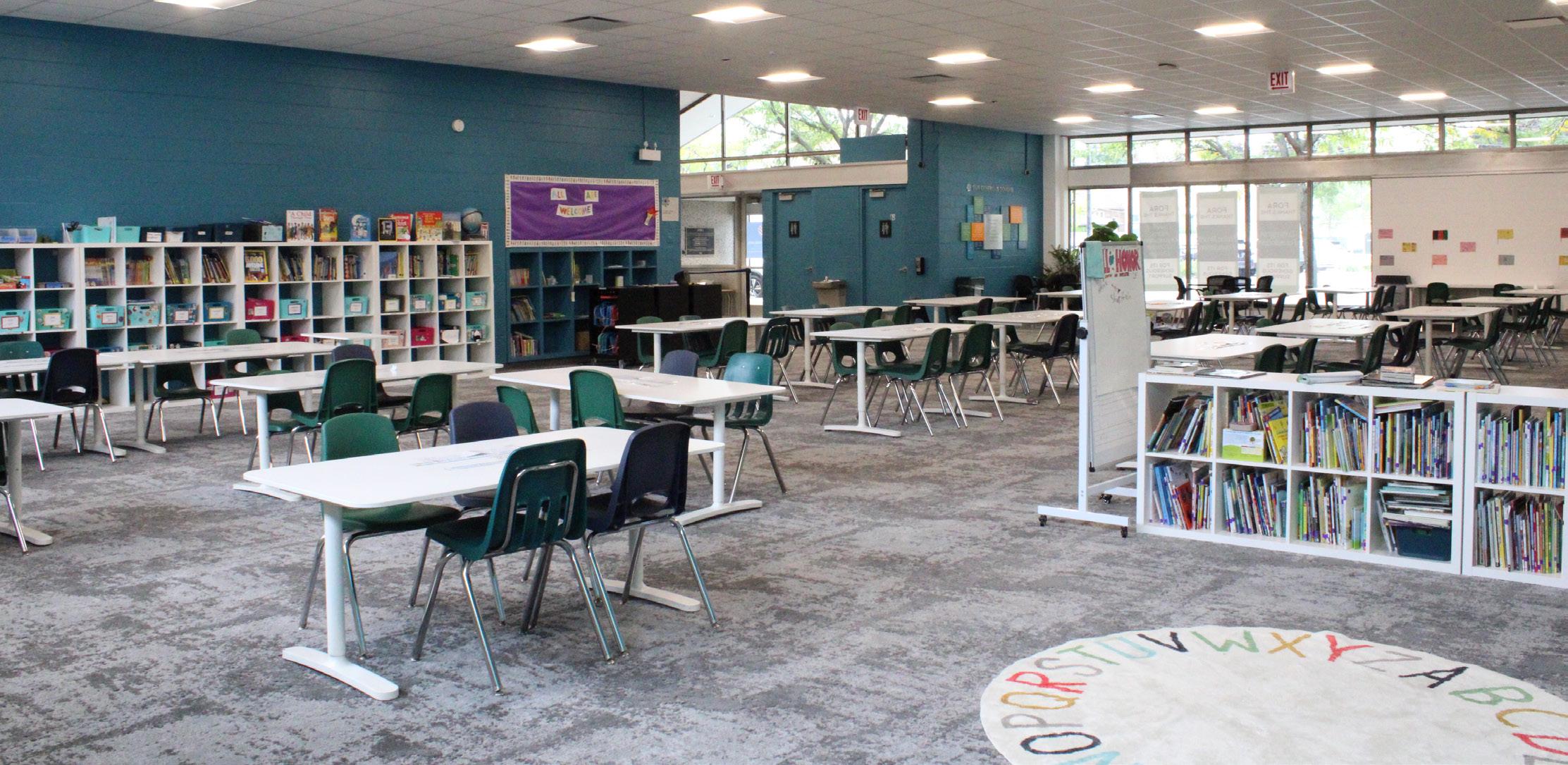
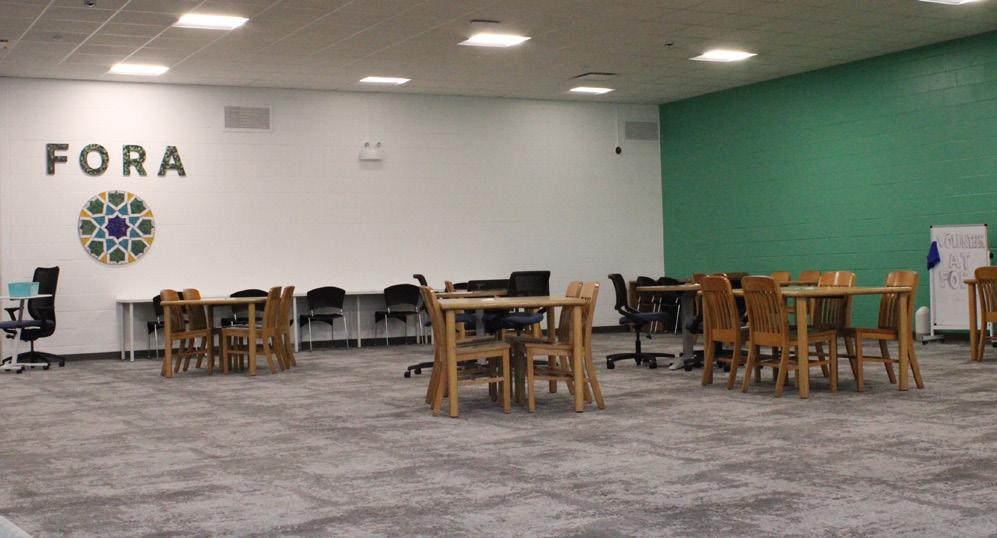
With the successful move into our new building, we are now focused on building our capacity to reduce the waitlist of over 100 refugee children eager for education. Your generous support will help us to sustain and grow our programs so these children receive the individualized support they need to thrive. Will you join us in empowering the next generation of learners?
You can donate in one of the following ways:
Go to our website www.refugeefora.org or scan the QR code below. Click on “Donate.”
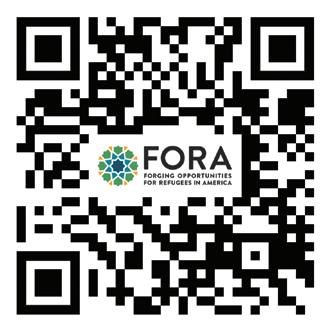
Send a check or a recurring credit card donation via the attached envelope (6435 N. California Ave, Chicago, IL 60645).
If your company offers a donation matching program, please consider using it to double your contribution.
We also happily accept stock donations. If you would like to make a stock donation, please write to Michael O’Connor at michael@refugeefora.org.
Please be as generous as brings you joy.
In addition to donations, FORA needs the following:
The refugee children we serve yearn and deserve to know that they are welcomed here. Please come and tell them in person that you welcome them to America. If you would like to visit, please reach out at michael@refugeefora.org.
Corporations that are willing to provide internships, host corporate volunteer days and/or donate to help us provide educational programming to refugee children are encouraged to reach out to Michael O’Connor at michael@refugeefora.org.
Our organization thrives because of our volunteers. Please join our dedicated team of amazing volunteers. We need in-person volunteers of any age who are willing to come four hours per week for at least 100 hours total. We also need adult online tutors who can tutor one hour every weekday during tutoring hours (4:30 pm to 6:30 pm and 7 pm to 9 pm, on weekdays throughout the school year; or every morning or early afternoon on weekdays during the summer). To learn more about volunteering at FORA, reach out to giuliannal@refugeefora.org.
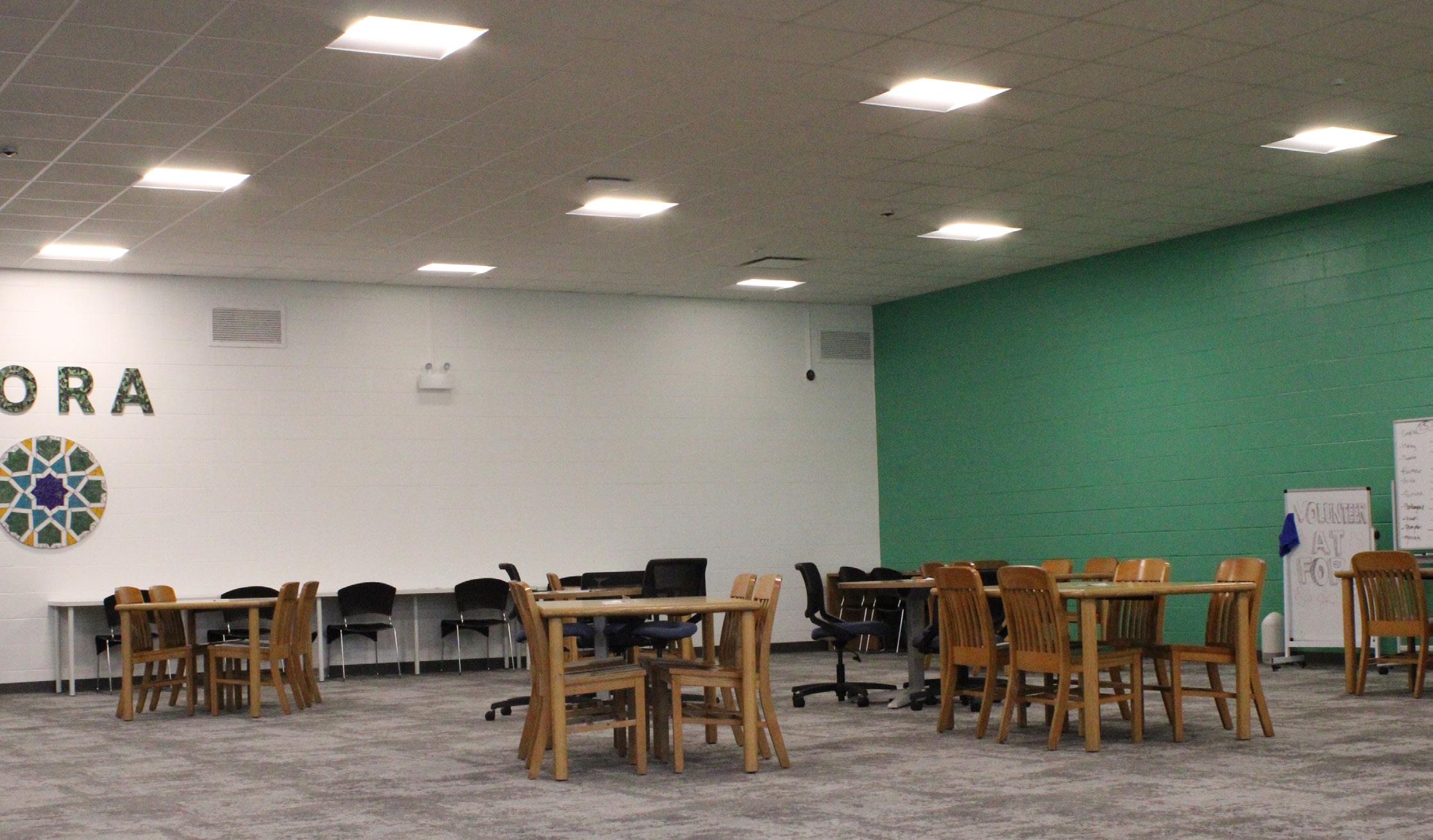
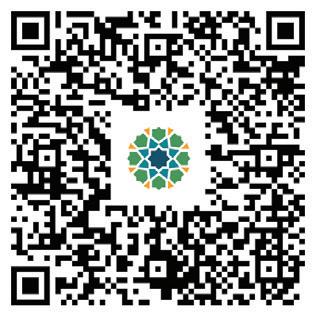
Sign up to be a tutor at FORA! Scan the code to fill out our application.
